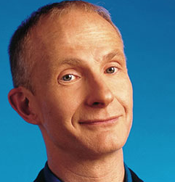
|
Lorna Mills and Sally McKay
Digital Media Tree this blog's archive OVVLvverk Lorna Mills: Artworks / Persona Volare / contact Sally McKay: GIFS / cv and contact |
View current page
...more recent posts
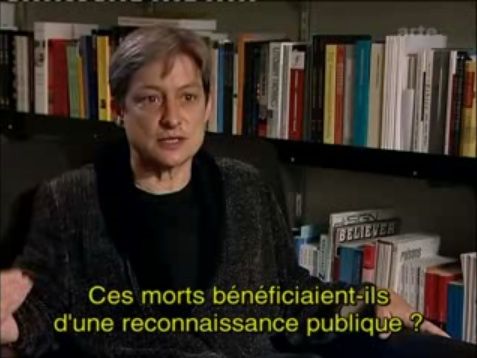
Lately I have been tangentially dealing with my distress over the miserable shit happening in Gaza by watching online vids about Jewish queer theorist/philosopher Judith Butler. Butler is famous for her work on gender and identity, but her stuff on Israel and war is also great. She's tough as nails. In one candid profile documentary, Butler talked about learning the importance of public mourning from the AIDs crisis, which she now applies to war, asking "who we can grieve and who we cannot grieve, what is a grievable life?"
part 1, part 2, part 3, part 4, part 5, part 6
Excerpt from Part 6:
Public mourning is not something we do just because we have personal needs to grieve. We do have those, I'm sure, but I think public mourning gives value to lives, bring us into a kind of heightened awareness of the precariousness of lives and the necessity to protect them, and also to understand that that precariousness is shared across national borders. There's no possibility of overcoming our precariousness, there's no possibility of becoming invulnerable, there's no possibility of evading death. It's just not going to happen. So to accept that kind of precariousness, even finitude, as a condition of human life is maybe a different basis for a certain politics. It's the one that the US foreclosed quite quickly ten days after 9-11. And its the one that they do not permit by putting a stranglehold on the media, so that we can't understand the precariousness of those lives, or the value of those lives that we've damaged or destroyed.There is also an excellent short speech from a Berkely teach-in on the Israeli bombing of Lebannon
I suppose that's my link. It seems AIDS activism did make public mourning very important. Las Madres in Argentina have done the same. Where are the disappeared? It seems crucial to make a lot of noise about those who have disappeared without a trace. It seems important to mark that, to make a trace, to make a sound. To disrupt that notion of the public sphere that would make certain kinds of images unseeable, make certain kinds of noises inaudible, make certain kinds of words unsayable. That's a kind of censorship that not only restricts what we can know, but also hampers our capacity to understand who has been lost, what violence has wrought and the value of human lives.
And a really good long lecture on Primo Levy and Israel
M. Jean's Ten Things That Struck Me
1. Mrs. L is 89. She lives alone in her 7th-floor apartment. She doesn't see. She remembers this view from the time when she was sighted. She refers to it as "When I had my eyes on." But back then these foreground trees were only saplings.
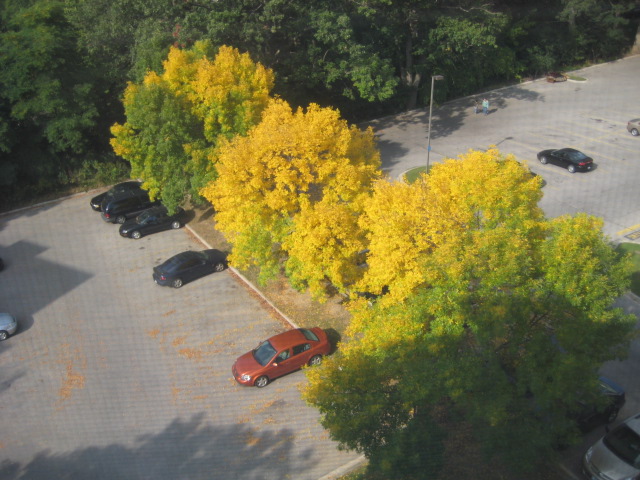
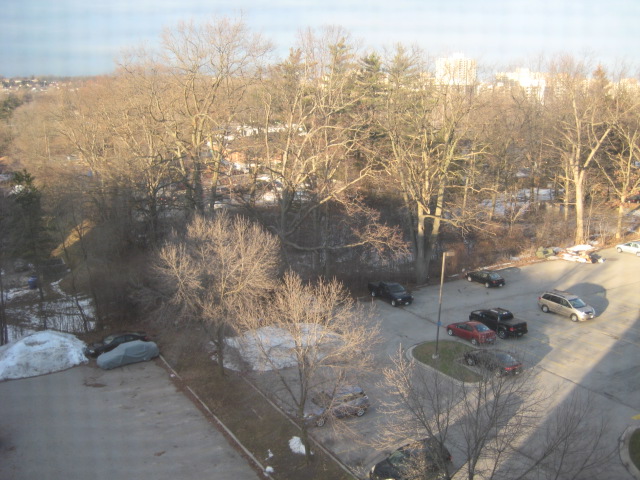
2. Michel Tremblay
I've loved his writing ever since I read The Fat Woman Next Door is Pregnant, the first in his series of autobiographical fiction. In December I read The First Quarter of the Moon, which picks up the same characters ten years later. It's so clear, so nuanced. So full of heartache without sentimentality.
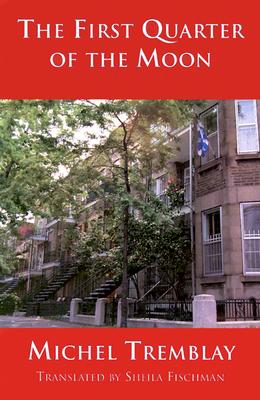 
3. Greyhound
I went to Vancouver on the bus, about a week after the horrible beheading. Right after I took this big-sky picture, we passed the little mound of flowers on the roadside, just west of Portage la Prairie. We were having our own drama; a marriage was coming apart in a spectacular fashion. So spectacular that the driver threatened to put them out on the road. Is this area some kind of wick for emotional extremity?
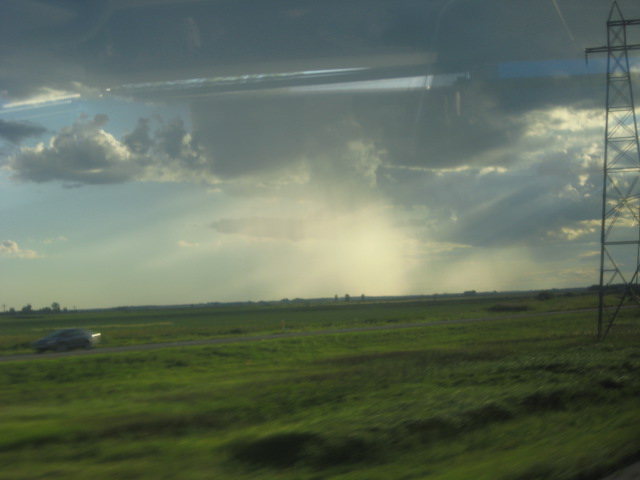
4. James Reaney, 1926 - 2008
He began teaching himself how to paint at his Stratford farmhouse when he was 16. A few months before he died, the McMichael mounted a show of his work. He was too ill to go and see it, but his son said to him, "Not bad for a little farm boy, ey"? And he said, "Yes," with a great deal of satisfaction. The show included several watercolour sketches he made while on a couple of trips across the country, and he was particularly proud of them. That he made art at all was a surprise to most of the literary community, who know him through his poetry and plays. The McMichael show has now moved to London, Ontario, where he lived and taught at Western, and is on at Museum London until mid-February.
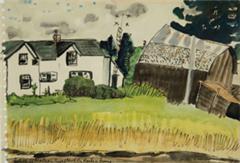
James Reaney, Maclean Township
5. Metropolitan Opera at Silver City
I saw La Boheme, one of my favourites. (Everybody's favourite.) But I must say I hated it in the cinema. Who needs to count nose-hairs, to experience a catharsis of pity and fear? Not me. I won't do my rant. I got so out of control at the performance that Sally had to get quite stern with me. But here's what I loved. In Intermission (live, real time), before the camera took us backstage, I watched a guy in the front row of one of the balconies get up and stretch. He was wearing a white dress shirt. It was graceful and stunning.
Who were you, anonymous beauful man? Will our paths ever cross again?
6. Kathie reads Alice Munro
A friend of mind, a longtime fan of Alice Munro's writing, set herself this summer to re-read all of her work. And she did it. Took her a bit longer than the summer. I like that. No government grants, no publicity, a genuine private cultural act. Nothing in it for her except pure pleasure.
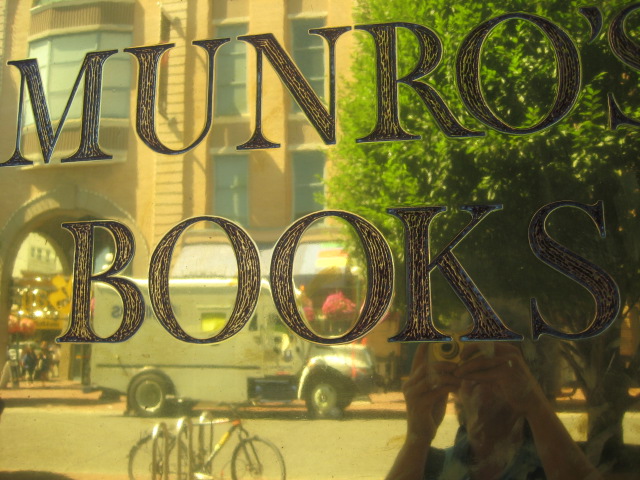 
7. Refurbished AGO
I went to public school in Toronto so it was one of our yearly field trip destinations, and that's probably when I learned to hate going in there. Since then I've ducked in and out, shuddering, for specific things I wanted or needed to see. The atmosphere always felt weighty and grimy and stuffy. So I was knocked right out by what they've done to it. It feels cleaner, and lighter, and fer gawd's sake, welcoming. And that's still downstairs, before you get up to the amazing windowed hallway at the back.

[apologies to M.Jean, but according to house rules all images of the new AGO must pass through blingee - SM]

8. Calgary, Alberta
When I was five years old I lay down in the grass of Balmoral Junior High (my brother's school) and looked up to see my first airplane. My mom said there were people sitting in it. I didn't believe her. Sixty years later I lay down in the same grass, and looked up, and saw a jumbo jet. Imagine the same grass still there, after all those years.
And then I walked across the Centre St. Bridge, and discovered the source of my recurrent nightmares about lions. And found some great wheat-pasting.
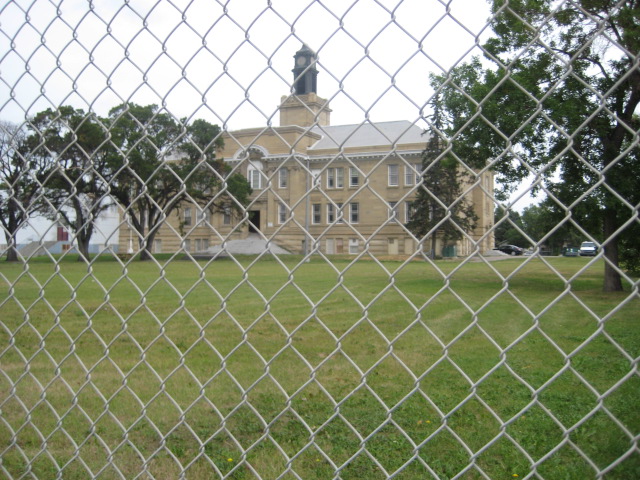
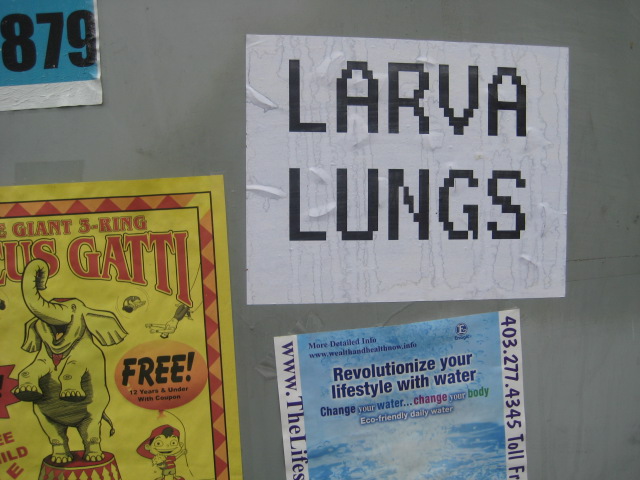
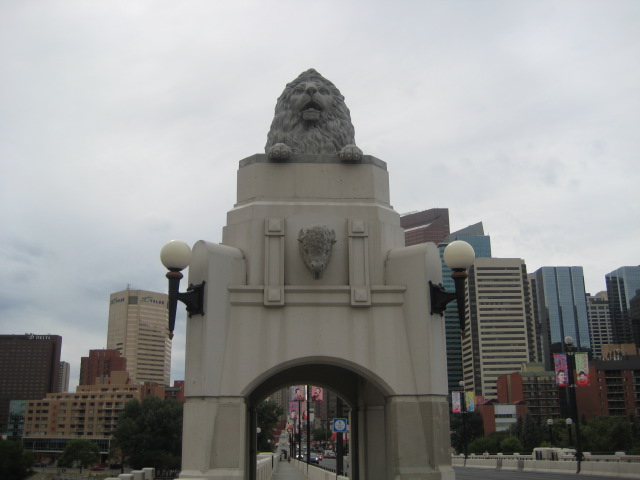 
9. Diorama Extravaganza
At the Landon Branch of the London Public Library System. This warms my heart every year. We're gearing up now for the 4th annual one. Everybody in the neighbourhood is welcome to enter. The youngest participant to date was three years old; the oldest, eight-seven.

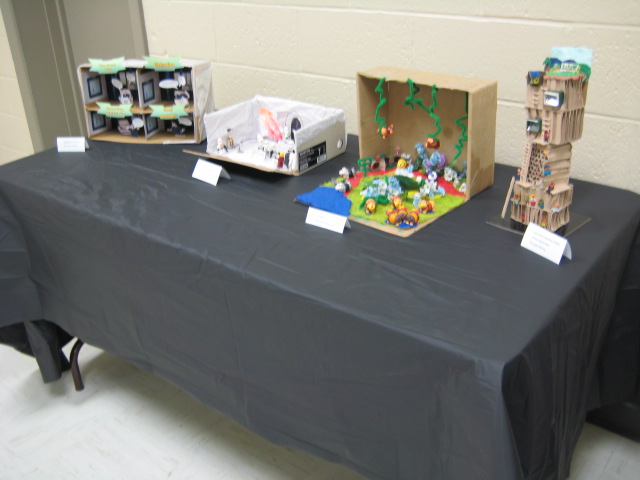

10. Bill Richardson
With the rest of CBC Radio 2 down the toilet, he's got it right. Saturday afternoon at the Opera, and Sunday Afternoon in Concert. It's his narrative tone that's so dead on. He's neither sycophantic nor apologetic. He takes it for granted that classical music matters, and goes from there. Serious, funny, informative, amiable. His interviewing technique is brilliant.
